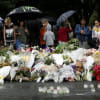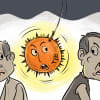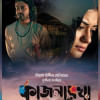It's time for others to own up
It all began with the candid self-criticism of the editor of an English daily that was celebrating its silver jubilee. Reflecting on his own experiences as the editor, at one point he regretted his decision in no uncertain terms to publish without independent verification reports on political leaders based on information provided by the Directorate General of Forces Intelligence (DGFI) following the 1/11 political changeover in 2007.
This rare feat of introspection is most welcomed. However, some, linked with the ruling party, have been up in arms. Effigies of the editor were burnt, defamation and sedition cases were filed in different parts of the country, and some members of the ruling party and its alliance partners launched virulent assaults against him on the floors of the National Parliament. One is baffled at this turn of events. The editor's statement was indeed inspirational in a political culture where critical self-assessment of actions by public figures and institutions is virtually non-existent. In this context, the reaction of the critics raises some interesting points.
Firstly, the detractors have claimed that the editor was in league with the military junta that ended the controversial Iajuddin chapter of the caretaker government (CTG). They may wish to look into the news reports to identify the political parties that welcomed the new government, the political dignitaries who extended their blessings to the regime by attending its swearing-in ceremony and the leaders who promised to indemnify all decisions and actions of that government now being presented as "illegal".
Secondly, the editor has been charged for publishing unsubstantiated reports. So far there has not been any proof that substantiate whether the misdemeanours reported were genuine or not. After assuming power, instead of contesting the charges following due legal process, the AL government, through an executive decision, decided to drop charges against its leaders and activists. This was in contrast to cases lodged against the BNP and its allies. Thus, one may surmise that in the eyes of the present government, the charges of corruption - at least those laid against its opponents - by the military-led government, were genuine. In public perception, such double standards have been nothing less than brazen abuse of executive power.
Thirdly, while the editor has been made a target for being the conduit of 'mis-information', there is no outcry against those who generated and fed the media such information. One wonders why the outraged members and supporters of the ruling alliance have not uttered a single word against the source - the DGFI. Should not the question be asked if the DGFI is at all legally mandated to meddle in civil-political matters, and if so, did the agency act under the purview of the law to pass on selected information on political leaders that were extracted through 'confessions' under dubious circumstances? Moreover, no quarter has raised any voice regarding how some media - both print and electronic – continue to carry reports fed by the RAB, police and other agencies based on 'confessions' of alleged criminals without giving any opportunity to the victims or their family members to narrate their version of the story.
Fourthly, perhaps the time has come to not only ask the ruling alliance why they have shunned the demand to put the perpetrators of 1/11 on the dock, but also question why a few of its principal protagonists were rewarded with positions, perks and privileges for a long time, after the AL assumed power. The question as to why a government that came into power through such massive popular mandate in 2011 shied away in prosecuting members of the military junta and their civilian associates who caused so much hardship for so many people also remains unanswered.
Mahfuz Anam had the forthrightness to own his editorial misjudgment and appears to be paying an undue price for it. The editor has set a rare example of what we expect of a person holding such a position. It takes immense courage to admit one's shortcomings in public, particularly in a divided polity where partisan passion rules over reason. The fierce reaction that his 'admission' generated among the ruling quarters and their intellectual bandwagon gives the impression that the latter stands on a higher moral ground, one that Anam has failed to match. However, if one delves deep into the conduct of the major political parties and public intellectuals, umpteen number of cases can be cited of their betrayal of public trust and undermining of the spirit of the War of Liberation.
The Daily Star saga has once again laid bare the intolerance that exists among the ruling elite about freedom of expression and the tenuous nature of fundamental freedoms that the people of Bangladesh enjoy. One hopes that public figures and entities have a better appreciation of the need for explaining their conduct to the masses, and also have the courage to own up to the policies they pursue.
The writer teaches International Relations at the University of Dhaka. He writes and researches on migration and rights issues.

 For all latest news, follow The Daily Star's Google News channel.
For all latest news, follow The Daily Star's Google News channel. 








Comments